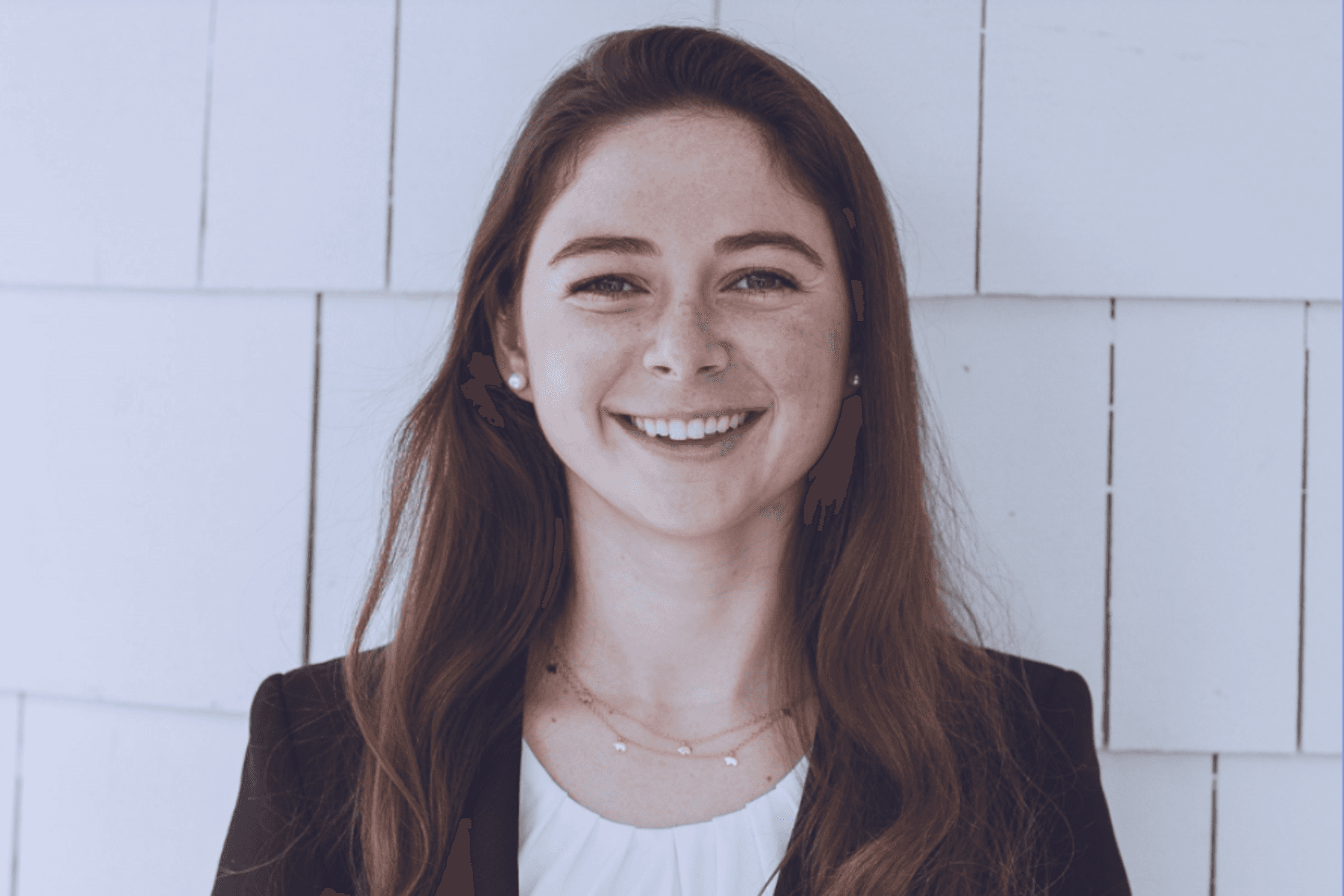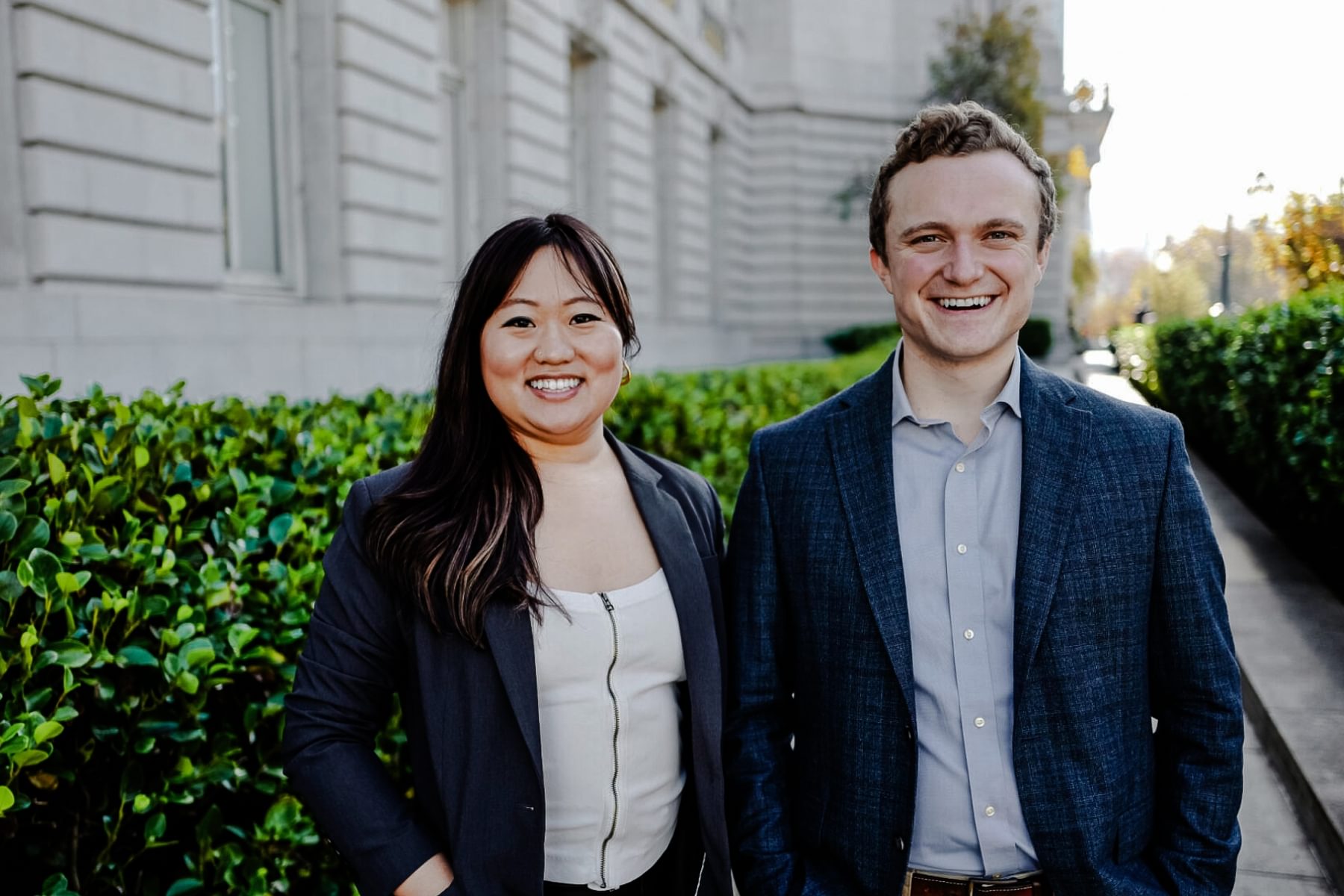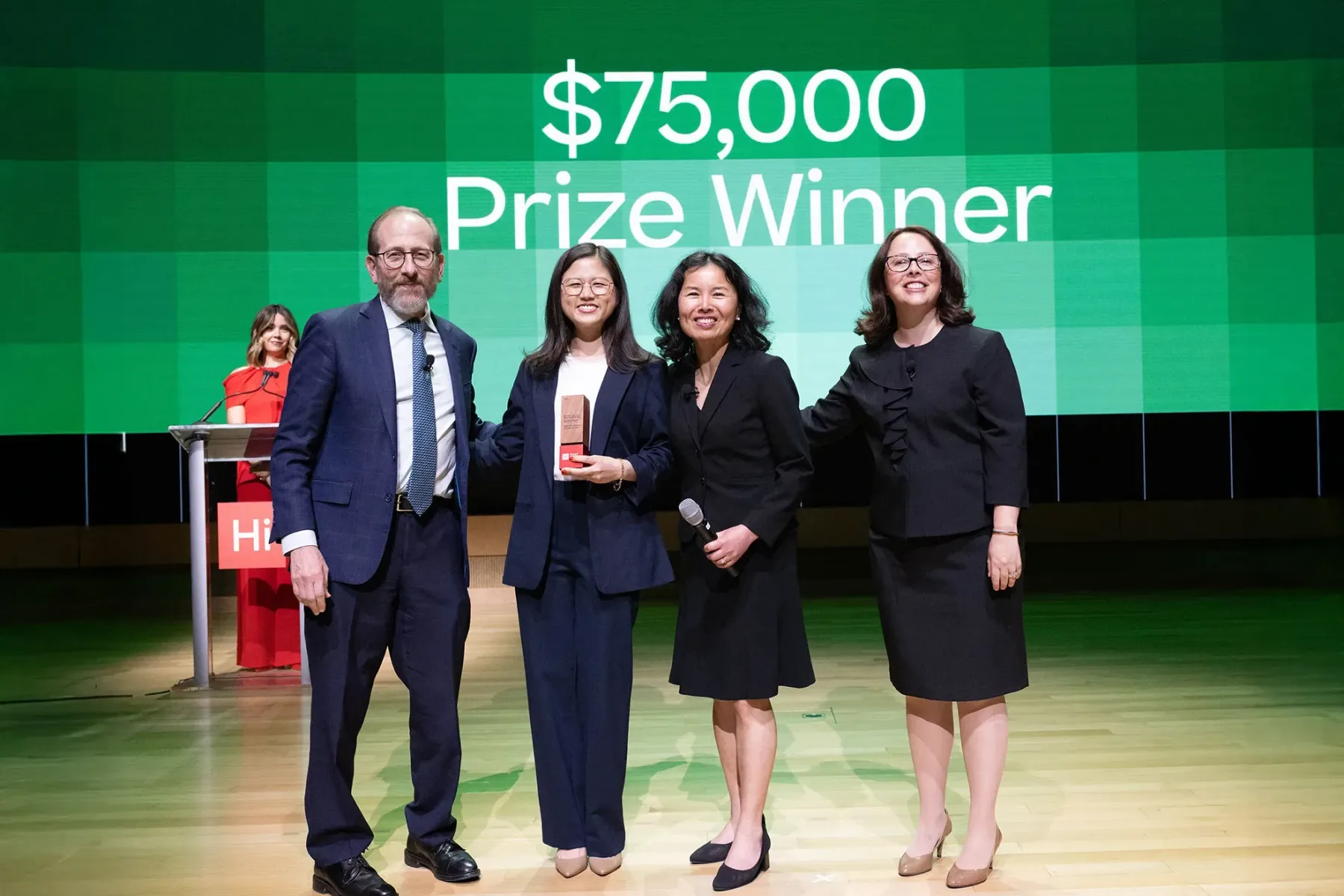Fashion is big business. Clothes can make us feel powerful, or cozy, reflecting our values, personalities, and moods. And we tend to buy a lot of them: Revenue from the global apparel market was calculated at more than $1.53 trillion in 2022. But making clothes requires enormous amounts of energy, water, and other resources. Production of just one cotton shirt, for example, requires approximately three thousand liters of water, while making just 1kg of fabric generates 23kg of greenhouse gasses, on average. So what’s a fashionista to do? “Make a more circular economy,” says Annabelle Hutchinson (Harvard Law School 2026). “Make it easier to buy and sell things that have already been created, rather than creating things from scratch.”
Through their new venture, Sift, Hutchinson and the Sift team have set their sights on transforming online shopping with a web platform and browser extension that automatically gathers second-hand alternatives from marketplaces across the web while you shop. “Like a lot of people in our generation, I’ve always been very concerned about climate and environmental issues. Fast fashion, and fashion in general, is way more of a problem than most people realize,” she says. “In an era where sustainability is not just a choice but a necessity, Sift empowers consumers to make environmentally conscious decisions without compromising on their style — or bank accounts.”
The depths of our closets
While the average adult wardrobe contains 118 pieces, research shows 26 percent will go unworn in the next year. If we all invested our unused items into the secondhand market and utilized tools like Sift, the impacts could be profound: According to Oxfam, a British-founded organization focused on the alleviation of global poverty, if all UK adults bought half of their wardrobe second-hand, it could prevent a whopping 12.5 billion kilograms of carbon dioxide emissions from entering the atmosphere — the equivalent of a plane flying around the world more than 17,000 times, or 261,000 flights from London to Greece. In the United States, the market for secondhand clothes is expected to reach $70 billion by 2027, according to the 2023 thredUP Resale Report.
Sift’s mission is to make it easier for those who want to buy second-hand to effortlessly find the items they want, using AI tools to scrape the web for text and images that match a shopper’s desired purchase with just one click. Although in its early stages, Sift has already amassed hundreds of users and has been recognized by Rhode Island Inno. It also won Hack@Brown, where Hutchinson and Sift’s CEO, David Chu, and technical cofounder, Jialiang Zhou, were undergraduates. Hutchinson met Chu while doing a Master’s at Oxford in 2022, and that’s when she joined the venture.
Next steps for Sift
As their company grows and begins to fundraise, Hutchinson is leveraging the Harvard Innovation Labs’ community of entrepreneurs to conduct user research and elevate their product. “We’re seeking feedback on improvements to the interface by identifying the different issues that users are facing,” with an ultimate goal for “Sifting” to become a household verb. “Our goal is that everyone uses Sift to buy and sell things secondhand online,” she says. “And it’s just a way for people to really make their purchasing and consumption habits more affordable, and most importantly, more sustainable.”
Sustainable style at the i-lab
Read about more i-lab ventures who are tackling sustainability in the fashion industry, like Shelly Xu Design, which creates zero-waste apparel, and S.A.L. Tech, which is turning seaweed into fashion.
Want to join a like-minded community of climate-focused innovators? Learn more about the Harvard Climate Entrepreneurs Circle.
Interested in joining a venture? Check our events calendar for upcoming founder/joiner happenings!





